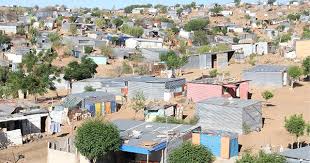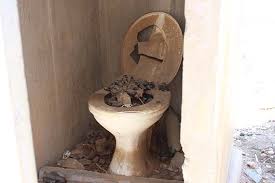Namibia
-
Namibia Set to Lay Off TB Health workers
- By solomon2day
- On 02/02/2022
- In News
 197 Health workers engaged by the Namibian Government to assist in the quest to eradicate tuberculosis in the country are on the verge of been laid off.
197 Health workers engaged by the Namibian Government to assist in the quest to eradicate tuberculosis in the country are on the verge of been laid off.
Thsi disclosure was made by the Excutive Director in the Ministry of Health and Social Services, Ben Nangombe, who attributed the development to the lack of funds.Read-Legalizing Crime and Criminality
The casual workers were employed to assist in the treatment of TB patients, referrals for diagnosis, TB contact tracing, symptom screening, collecting sputum samples, as well as informing and educating the community.
-Landlords and Tenants Associations, Crime and Criminality
The Global Fund (GF) has been supporting the country in its fight against HIV-AIDS, TB and malaria through the provision of renewable grants since 2006.
-Law Enforcement: The Reactionary Approach
“The discontinued funding of TB promoters affects activities in all regions. Namibia has made great progress in the fight to end TB, and field promoters have been crucial in this fight. The ministry is exploring options and possibilities to secure funding and sustainable ways to ensure the continuation of this program. The current GF grant which runs from 2020 to 2023 will continue to fund all the other activities,'' Nangombe stated.-Government Workers-A Subject of Debate
-
Namibia PM Laments Low Positions of Women
- By solomon2day
- On 03/08/2019
- In News
 Prime Minister of Namibia Saara Kuugongelwa-Amadhila has decried the low positions of women in paid employment in the country.
Prime Minister of Namibia Saara Kuugongelwa-Amadhila has decried the low positions of women in paid employment in the country.Kuugongelwa- Amadhila made this position known on Friday at the Namibia Women in Engineering Annual Conference in Ongwediva.
"Women remain at the lowest level of employment and struggle with practical impediments that limit their economic independence and self-sufficiency," the Prime Minister stated.
She lamented that Namibia was a signatory to the Convention on the Elimination of All Forms of Discrimination Against Women (Cedaw), the Beijing Platform for Action (1995), the Cedaw Optional Protocol (2000) and the Southern African Development Community (Sadc) Declaration on Gender and Development (2005),while noting that the aim of all these laws, conventions and protocols was to ensure that women have equal opportunities to their male counterparts.
The Prime Minister,however, wondered that despite all these effortslegal equality was yet transform into structural equality.
-
Community Group Savings Crucial to the Provision of Affordable Houses-Namibia Govt.
- By solomon2day
- On 25/03/2019
- In News
 The Government of Namibia has said that community group saving schemes was crucial to affordable housing in the country.
The Government of Namibia has said that community group saving schemes was crucial to affordable housing in the country.This disclosure was made, recently, by the the Deputy Director in the Ministry of Urban Development,, Naomi Simion at an event in Windhoek.
The program in named Shack Dwellers Federation of Namibia.
Simion, who doubles as board member of the Shack Dwellers Federation of Namibia (SDFN) and the Namibia Housing Action Group, also stated that the government decided to provide an annual grant to the federation at independence through the Build Together Programme.
“The government has since recognized the critical role of community-based group saving schemes such as the Shack Dwellers Federation as a viable and sustainable solution to informal settlements and the provision of affordable housing,” Simion disclosed.
The government has spent $59 million for the construction of 2 , 284 housing units nationwide in the past 19 years.
Also speaking at the event, First lady, Monica Geingos, said people must speak the language of humanitarianism to address the housing situation in informal settlements.
“I think what we forget when we look at informal settlements, into slums and we see these shiny zinc boards is that there are people inside,” the First lady stated. -
246 Schools in Namibia without Toilets-Report
- By solomon2day
- On 25/02/2019
 About 246 schools in Namibia are without toilets.
About 246 schools in Namibia are without toilets.This disclosure was made by the Education Management Information System Report.
The report stated that in Kavango West, 70 schools have no toilets, while 106 have same
. In Kavango East, 63 schools have no toilets, and 101 have the facilities.
Nationwide, 63,2% of schools have flush toilets.
However, the report stated that there has, been a remarkable improvement in the provision of sanitary facilities to schools in the country.
Indeed, the Kavango East and Kavango West regions are still poorly serviced, with 61,6% and 60,2% of schools, respectively, having toilets for pupils. These are also the only regions where such facilities are at less than 65% of schools.
Alos there has been an increase in water supply to schools in general. Kavango East and Kavango West are the most poorly serviced as far as water supply is concerned, with 67,1% and 73,3%, respectively.
